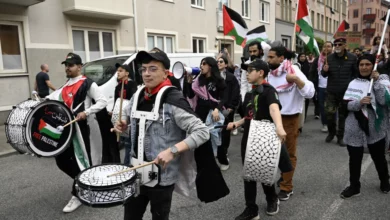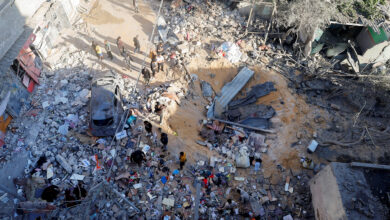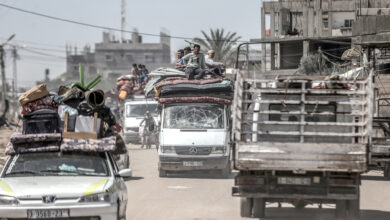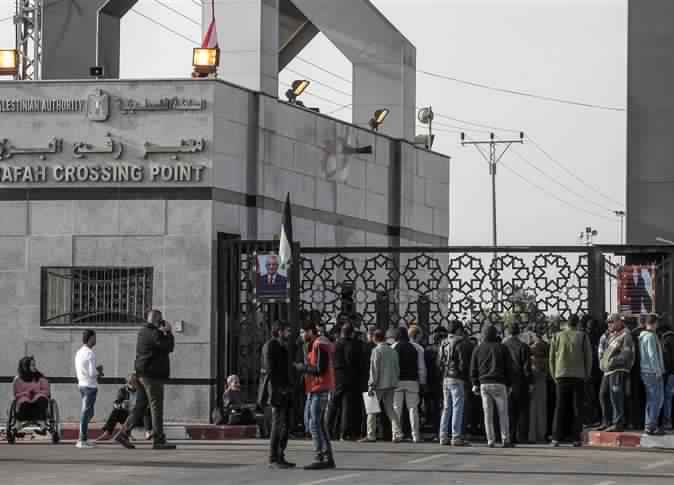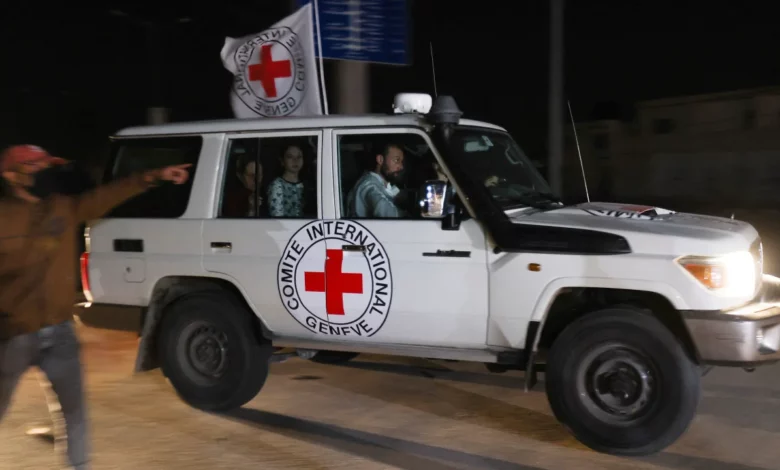
Excitement has been replaced by tension in Israel, after a brief delay before the release of several Israeli hostages on Saturday underscored the tenuousness of the nation’s deal with Hamas, which still holds around 200 captives in Gaza.
Many demonstrators appeared close to tears at a rally for the families of hostages in Tel Aviv on Saturday evening, even as a diplomatic scramble was taking place to restart the release process.
“This is what happens when you do a deal with the devil,” said attendee Neta Rosenberg. “If this is how I feel, I cannot imagine how hostage families are feeling.”
Despite news that the deal was back on, just hours later, a mood of bitterness lingered – in a stark contrast to the jubilant scenes on Friday when the first group of freed Israeli hostages were reunited with their families.
The deal brokered with Hamas is designed to see captives kidnapped on October 7 exchanged for Palestinian women and children imprisoned in Israel, a four-day truce in fighting, and increased humanitarian aid access to the besieged enclave. Hamas on Saturday blamed the delay on issues with the amount of aid being delivered and selection of Palestinian prisoners being released.
But Alex Sherman, whose son Ron was taken captive from his army base near the Gaza borderon October 7, told CNN he felt the hold up could be a ploy.
“They will do anything to delay negotiations,” he said.
Some relief finally came overnight, when 17 hostages were allowed to leave Gaza and cross into Israel – a small group that included four Thai nationals and 9-year-old Emily Hand, an Irish-Israeli dual citizen.
Thirty-nine Palestinian teenagers and women were also released from Israeli prisons, per the terms of the exchange, on Saturday.
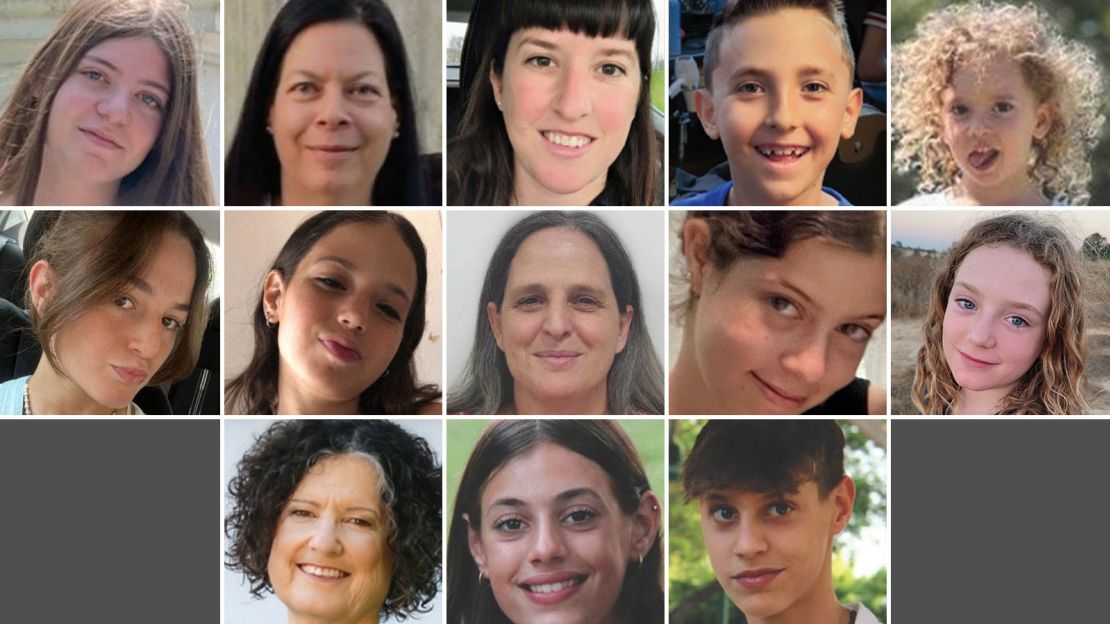
Cheering the hostages’ arrival
The apprehension on Saturday was in contrast to the release of the first group of hostages, when crowds of onlookers cheered their arrival at hospitals around Tel Aviv. An initial group of 24 people were freed on Friday, including 10 Thai citizens and a Philippine citizen. All but one of the Israeli hostages released had been at the communal kibbutz of Nir Oz when they were abducted. Nir Oz was devastated during the attack, and more than a quarter of the community was killed or remains missing.
The community’s founder Yafa Adar, the oldest of all hostages known to have been taken on October 7, was one of those freed on Friday. Her abduction on a golf cart, driven by Hamas militants, had been captured on video over a month ago.
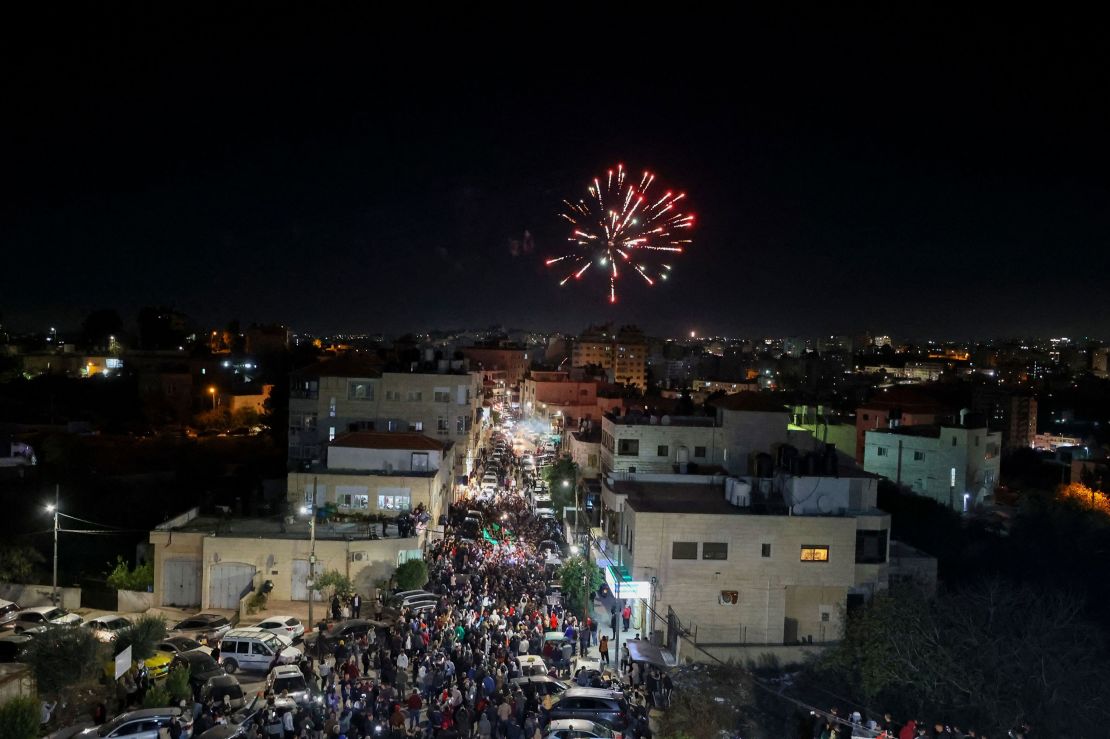
Yoni Asher, whose wife and two daughters were released by Hamas on Friday, hugged his family on a hospital bed, telling them in Hebrew: “Soon we’ll go to our house in a little while we’re going back to our house. We’ve just come here for the doctor to check us and then we’re going home but we’ve put lots of dolls and toys out for you, lights, lots of things.”
The mother of a released Thai hostage said she “cried with happiness” when she heard her daughter, Nutthawaree Munkan, was back in Israel. “I broke into tears when I spotted her in two video clips. I recognized her hair and the way she normally walks,” Boonyarin Srichan told CNN.
Asian migrant workers in Israel – some of whom hail from poor regions in Thailand and work in Israel’s agricultural industry – were among those brutally killed and captured by Hamas on October 7.
Joy in the West Bank
Palestinians released from Israeli prisons were met with celebrations on Friday evening as they returned to their hometowns and villages in Jerusalem and the occupied West Bank.
Twenty-two women were among those released, as well as two girls. Fifteen teenage boys up to the age of 18 were also released — the youngest aged 14. Many of them were being held under administrative detention, a widely criticized practice that sees people held without knowing the charges against them, and without any legal process.
Aseel El-Titi, a 23-year-old prisoner released on Friday, told CNN she had only found out that morning she was being released. But, she said, her joy was tempered by the knowledge of what was happening in Gaza. “The number of martyrs in Gaza has become greater than the number of prisoners [in Israeli jails],” El-Titi said.
Under the deal, Israel is freeing three Palestinians from jail for every Israeli hostage allowed out of Gaza. Securing the freedom of an expected 150 imprisoned Palestinians has been seen as an opportunity for Hamas to burnish its credentials in the West Bank as the flagbearer of Palestinian resistance.
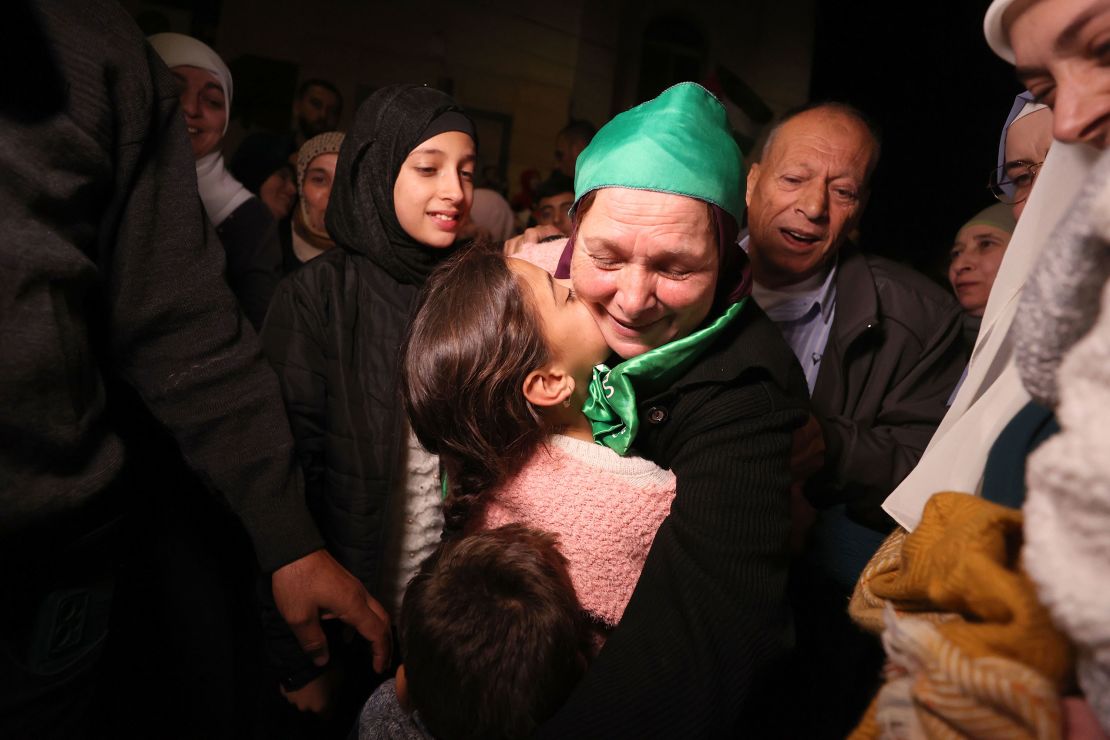
But amid the wall-to-wall coverage of the hostage release in Israeli media, many worry about the rest of the hostages left in Gaza – the current truce has only spelled out the release of 50 Israeli women and child hostages.
Relatives of male Israeli hostages are imploring the international community to make another push for their loved ones to be released, while some worry about a potential strategic advantage the pause in fighting might give Hamas.
“We have a big struggle ahead of us,” said Nadav Rudaeff, whose 61-year-old father is being held in Gaza, told a press conference. “The fight still isn’t over.”
CNN’s Oren Liebermann, Joseph Ataman, Clarissa Ward, Kocha Olar, Manveena Suri, Eve Brennan and Lauren Izso contributed to this report.

